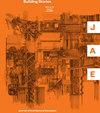超越资本主义?
IF 0.5
4区 艺术学
0 ARCHITECTURE
引用次数: 0
摘要
34困难,例如一个人如何教学,以及谁可能首先教授或获得建筑教育。随着对捐赠和利润的关注越来越优先于许多西方大学和专业的指导功能,文化生产被空洞和自我指涉的术语所取代。“内容”已经意味着一切可以消费的东西——甚至是“批判性教育学”本身的主张。源自商业历史的术语,如“创新”、“领导力”、“成长”、“卓越”和“绩效”,已成为建筑教育中的决定性指标;很明显,建筑业和建筑师的教育现在已经无法区分。面向国内的认证标准和课程将课程主题置于教育学和福祉之上,执照考试将商业置于环境和社区之上,持续的剥削文化在各州、国界、代际和工作部门得到维护和复制。ABC学校旨在考虑资本主义的术语在历史上是如何通过要求永远新的内容来阻止结构变化的,以及基于组织技术和原则的新教学法如何鼓励建筑孤立场所的变革:学生与从业者一起学习;教师与学生一起学习;公众成员学习以上所有内容。这所学校的灵感来自贝尔胡克和保罗·弗雷尔等思想家的交叉工作,他们通过将批判性教育学与劳工组织联系起来,挑战教育的“银行体系”。组织被认为是重建建筑和整个社会学科的核心。1超越资本主义?组织建筑教育本文章由计算机程序翻译,如有差异,请以英文原文为准。
Beyond Capitalism?
34 difficult, such as how one teaches and who might be able to teach or access architecture education in the first place. As concerns about endowments and profit increasingly take priority over the guiding functions of many western universities and professions, cultural production is replaced by hollow and self-referential terms. “Content” has come to mean everything and anything that can be consumed—even claims of “critical pedagogy” itself. Terms derived from the history of business, such as “innovation,” “leadership,” “growth,” “excellence,” and “performance” have become the defining metrics within architecture education; it is evident that the business of architecture and the education of architects are now indistinguishable. Inward-facing accreditation criteria and curricula prioritize course topics over pedagogy and well-being, licensure exams prioritize business over the environment and community, and a persistent culture of exploitation is maintained and reproduced across states and national borders, generations, and work sectors. The ABC School aimed to consider how the terms of capitalism have historically prevented structural change by demanding perpetually new content, as well as how new pedagogies based upon the techniques and principles of organizing might encourage change across architecture’s siloed sites: students learning with practitioners; faculty learning with students; members of the public learning with all of the above. The school was inspired by the intersectional work of thinkers such as bell hooks and Paulo Freire who challenge the “banking system” of education by connecting critical pedagogy to labor organizing. Organizing was imagined to be central to reconstructing the discipline of architecture and society at large.1 Beyond Capitalism? Organizing Architecture Education
求助全文
通过发布文献求助,成功后即可免费获取论文全文。
去求助
来源期刊

Journal of Architectural Education
ARCHITECTURE-
CiteScore
0.60
自引率
0.00%
发文量
18
期刊介绍:
The Journal of Architectural Education (JAE) has been published since 1947 for the purpose of enhancing architectural scholarship in design, history, urbanism, cultural studies, technology, theory, and practice. Published on behalf of the Association of Collegiate Schools of Architecture, JAE appears twice annually in October and March, with the October issue being the first of a new volume.
 求助内容:
求助内容: 应助结果提醒方式:
应助结果提醒方式:


